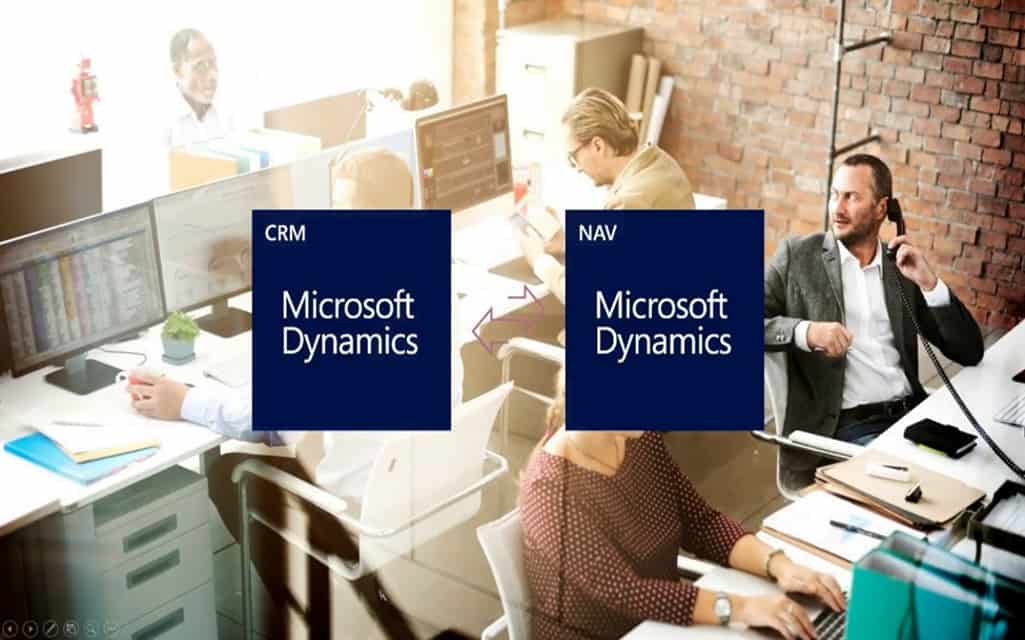Both aiming to increase profits, Customer Relationship Management (CRM) and Enterprise Resource Planning (ERP) systems seem similar. Choosing and integrating tools like Microsoft Dynamics NAV online (or more recently Business Central) even brings these systems together in the connected cloud, merging operations, people, data, and processes. But, how do these systems compare? And, what does it mean for how you integrate and how you use Microsoft Sales Force Automation?
Fundamentally, a CRM is different from an ERP in the sense that they each take a different approach to the same goal: increased profitability. So, let’s dive into what these systems are and how they can interact.
What is a CRM?
At its core, a CRM is a system for managing interactions with customers, present and future. CRM software organizes and automates services and functions in sales, marketing, and customer service. In fact, it can include nearly all areas of the customer experience. In design, it’s meant to improve customer satisfaction, loyalty, and business value.
The role of the CRM is to allow you to sell more customers more products and services by delighting them with custom attention and specific solutions to their problems. Rather than a system for tracking inventory or business efficiency, it aims to increase profits in a direct fashion by bringing in more business.
What is an ERP?
While your CRM manages your customer’s experience and investment in your business, ERPs are meant to manage business processes. That is, an ERP improves your efficiency, allowing for all departments and employees to enter information and trigger alerts. This all lets you plan for issues before they become a problem. In other words, ERPs focus on business data.
An ERP is not designed to manage customers, relationships, contacts, or even soft information between people as they collaborate on a project or ticket. Instead, an ERP focuses on the hard data that exists between each department, centralizing this for the most insightful business decisions.
How does Microsoft Dynamics NAV online fit?
You might be able to run your entire business with Microsoft Dynamics 365 because it is both an ERP and CRM. That means you can use it to manage a customer’s journey through marketing and support while closing more deals in sales and cutting costs where needed for efficiency.
Microsoft Dynamics 365 gives you complete control over your core business processes with the precision to help your employees perform their best at maximum efficiency. You can better handle finances, chains, business intelligence, sales, projects, service, and support through a single system.
Why use Microsoft Sales Force automation?
Sales Force automation sounds like an impressive and promising feature of Dynamics 365. And, it does allow a certain level of robust power to your sales and customer management teams so they can both be more successful. Sales force automation within Microsoft Dynamics 365 means your users can access customer insights more easily while providing a 360-degree view of accounts, contacts, and events.
Read More: HubSpot Vs Salesforce- Main Benefits of Using HubSpot
Integrating CRM and ERP systems
There are many ways to go about increasing the profitability of your business. You might be considering a CRM or an ERP like Microsoft Dynamics 365 Business Center as your next big technological move. Among them, you might choose Salesforce, Microsoft, or a combination of systems that need to be integrated to perform better and grow faster.
Rapidi specializes in helping businesses improve their decision-making processes and get a complete view of every customer in order to develop strong relationships and grow your business. By integrating your systems, you can reduce manual data-entries and eliminate data errors and duplicates. Finally, you’ll synchronize your data through a cloud-centric platform.
The RapidiOnline data integration solutions offer you a chance to replicate and integrate data between Salesforce and Microsoft Dynamics, giving you the full view of your customers and your business information. Evaluate RapidiOnline to learn more, and get in touch.
Is it different from MS Project SalesForce Integration?
Salesforce integration with legacy systems can be done easily with data integration solutions such as RapidiOnline. You can integrate Salesforce with ERP solutions but also other systems, such as Microsoft Project. Integrating the well-known CRM with the Microsoft project management software is possible through a few third-party extensions. Nevertheless, it can allow your sales and marketing teams to view critical project information from within Salesforce.com, making it easy to communicate with service teams.
Integrating Salesforce with MS Project might cover some of the needs of your sales staff if you do not wish to do a comprehensive Salesforce/ERP integration.



